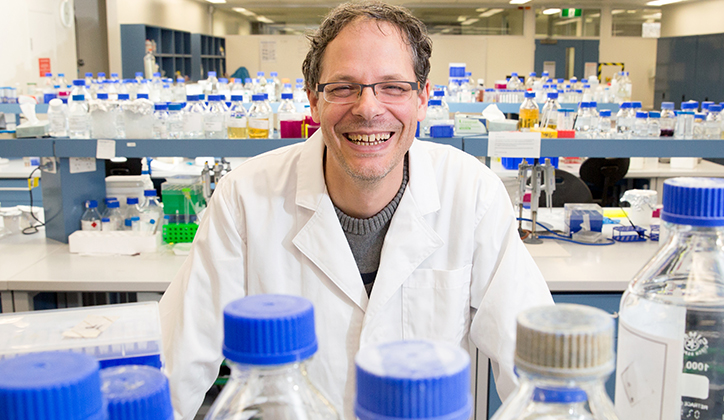Join us in congratulating Professor Ian Paulsen, announced as an Australian Laureate Fellow. Paulsen will receive $2.7 million in new funding to boost his research into bacteria and its effect on the marine food web.
“When people think of bacteria, they usually just think of them as germs that cause disease,” says Ian. “But bacteria actually play crucial roles in all sorts of systems – they were responsible for the original oxygenation of earth’s atmosphere and without bacteria there would be no life on the planet.”
The Australian Laureate Fellowships scheme, administered by the Australian Research Council, gives outstanding research leaders the opportunity to tackle some of the most urgent and complex research issues facing Australia and the world.
Paulsen’s work into photosynthetic bacteria will enhance monitoring of the health of Australia’s vital marine resources. “Photosynthetic bacteria in the ocean are responsible for a quarter of the carbon fixation on earth and provide the underlying base for the entire marine food web,” says Ian. “Despite their importance, we are only starting to understand how they adapt to different conditions in the ocean.
Ian was presented the award by the Minister for Education, the Hon. Christopher Pyne MP, at a ceremony in Adelaide.
“I think I’ve always been interested in science,” says Ian. “As a kid, I loved reading science fiction, I collected rocks and minerals, and I made my parents get me a telescope for Christmas. My father wanted me to pursue a career in accountancy, but I wanted to pursue a career where I felt I could make a real difference, and advance humanity’s knowledge.”
Deputy Vice-Chancellor (Research) Professor Sakkie Pretorius has congratulated Ian on this next stage of his scientific career. “Professor Paulsen is a black-belt in our field – with more than 200 publications, he is an Institute for Scientific Information (ISI) Highly Cited Researcher and one of the world’s top scientific minds. I have enjoyed working with him on the launch of our synthetic biology project, and look forward to hearing of his new developments with cyanobacteria, too.”

